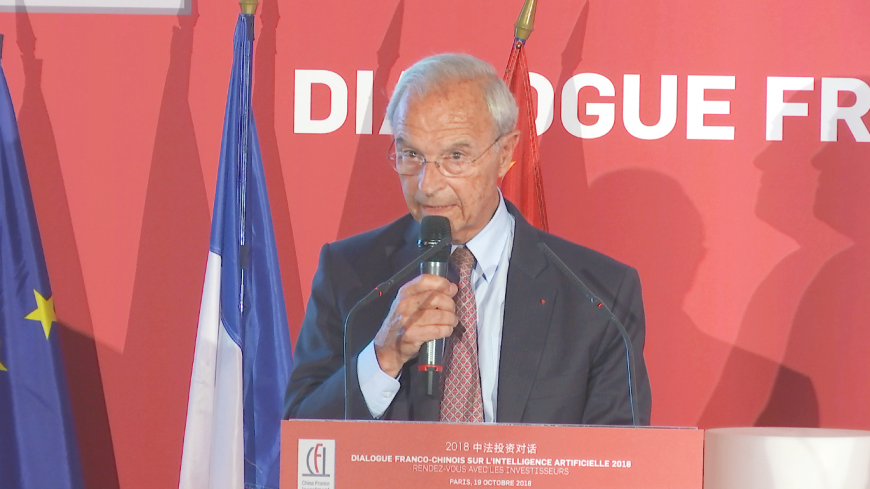Solid Foundation on which to Build

“I am very happy to make the concluding remarks for today's forum. The topics discussed today are very rich and have brought us great hope. Let us see what we have done, what we can do now and what we can do in the future. So thanks to all the participants, sponsors and organisers, and the China Europe International Business School, the French Chamber of Commerce and Industry in China, and the French-Chinese Exchange Association of our Chamber of Commerce and Industry.
This Sino-French investment dialogue has three purposes: 1) to understand the two countries' strategies in the development of artificial intelligence; 2) to discover our economic opportunities in the field of artificial intelligence; 3) to explore the prospects for cooperation between the two countries in this field. I think that all three of these goals have been achieved. The quality of the speeches of the distinguished guests was very high, which greatly enhances mutual understanding.
Forty-five years ago, Alain Peyrefitte, who served as French minister many times, published a very successful book, When China awakes, the world will tremble. Now China is fully awakened and is focusing on the very promising artificial intelligence revolution. China has a lot of resources, many companies have done a lot of work on massive data, and the government has also invested artificial intelligence as the core content of economic development, invested heavily in building a giant technology park in Beijing, and launched education in this area.
Similarly, France has many advantages in the field of artificial intelligence: First, the quality of education is high. The [level of] education in the field of mathematics in France has been widely recognised internationally. It is related to artificial intelligence, including mathematics, algorithms, human behaviour and informatics. Second, the level of research and development is high. We have a total of 5,500 researchers, mostly in Paris, which is no accident, as there are many large companies that have their R&D centres in the Paris region. A recent example is Facebook, which will invest an additional 10 million euros for the construction of its research institute in the second district of Paris. Finally, the ecosystem is good and can promote entrepreneurial innovation. There are more than 300 start-ups and SMEs in France engaged in research related to artificial intelligence, especially in the medical field, and the number of start-ups has increased by 30% annually since 2012. Research shows that France was second in Europe in 2016 in terms of financing for artificial intelligence. So the French-Chinese cooperation has a solid foundation.
In January of this year, during his visit to China, President Macron announced the establishment of the French-Chinese investment fund with a capital of 1 billion euros to support the development of French SMEs in the Chinese market. In addition, many top universities in France and China have cooperated in the field of artificial intelligence, including the Sorbonne Alliance in Paris, the Polytechnic University of Paris, the Higher Normal College of Paris, the Sorbonne University in Paris, the Sacramento of Paris, and the Tsinghua University. Zhejiang University, Shanghai Jiaotong University, and the French-Chinese Foundation have established the “AI Alliance” to apply innovation to a wider range of fields such as health through interdisciplinary international cooperation.
I am very happy to participate in this forum. As we all know, promoting cooperation in France has always been the focus of our work over the past 20 years. I believe that this forum will enhance deeper cooperation between French and Chinese companies in related fields. Thank you all!”












